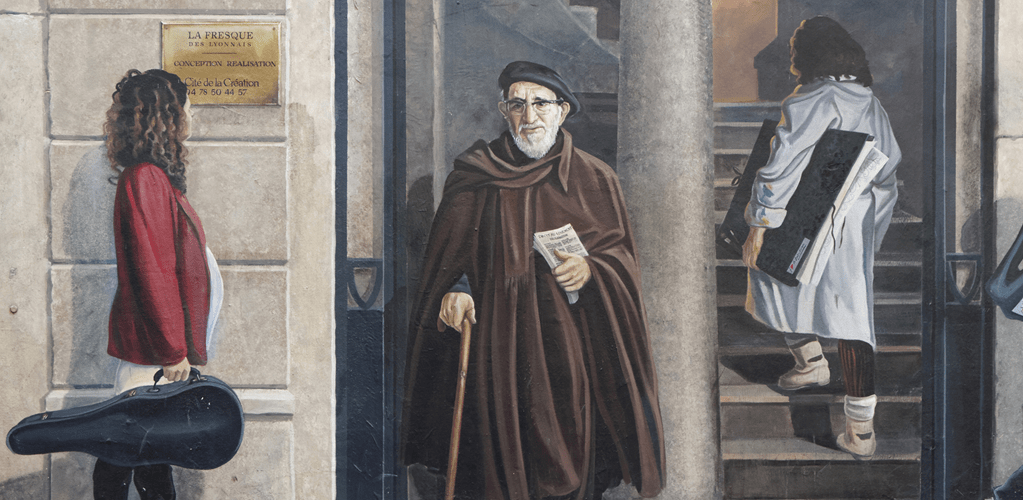The dark side of a Saint: Unveiling the hidden legacy of Emmaus’ founder
Martin Hirsch, former president of Emmaus, reveals how the solidarity organisation grappled with its founder, French priest Abbé Pierre’s controversial past and highlights the ongoing challenge of upholding his legacy while addressing misconduct allegations.

TL;DR | Highlights from this story
● Former Emmaus president, Martin Hirsch, examines the charity’s founder dual legacy, revealing internal conflicts within Emmaus over his misconduct and contributions.
● Allegations of abuse by Abbé Pierre, including sexual misconduct by seven women, challenge his saintly public image.
● Emmaus confronted controversial aspects of its founder, including his support of a revisionist figure.
● The recent revelations prompt Emmaus to evolve, reaffirming its mission to fight poverty.
I n a revealing article published this week in the French daily Catholic newspaper La Croix, Martin Hirsch, the former president of Emmaus – a charity organisation that works with communities to end homelessness – delves into the complex legacy of Abbé Pierre (real name Henri Grouès), the renowned French priest and humanitarian.
Hirsch, who led Emmaus from 2002 to 2007, uncovers the internal conflicts faced by the organisation in reconciling Abbé Pierre’s monumental contributions with serious allegations of misconduct that have recently come to light. Last week, the Abbé Pierre Foundation and Emmaus issued a joint statement on the findings of an investigation they had commissioned following reports of abuse by their founder.
An independent research group revealed that seven women, including one minor at the time, had testified to suffering sexual abuse by the French priest between the late 1970s and 2005. “These revelations have shaken our organisations, where the figure of Abbé Pierre plays a major role. We all know his story and his message. These acts profoundly change the way we regard this man, who was known above all for his struggle against poverty, destitution and exclusion,” the charities wrote.
CONTINUE READING...
Enjoy unlimited access now.
To get full access to this article,
simply become a member of PUBLIC SQUARE now.
By doing so, you will be supporting
our independent journalism.
MEMBERSHIP OPTIONS:
£3/month ∙ £5/month ∙ £7/month
You can cancel anytime.
BECOME A MEMBER
Already a member? Sign in here!
BENEFITS OF MEMBERSHIP:
✅ Read exclusive member-only articles
✅ Read our daily review of the UK front pages
✅ Receive every new article by email
✅ Access all our articles
✅ Get Special Discounts with our partners
✅ Join the conversation: Comment our articles
✅ Access our archives
✅ More importantly: Support independent journalism and keep the magazine going
Read more

— On his first day, Donald Trump pardoned January 6 rioters, emboldened extremists, and signed a vague economic order, raising deep concerns about his emboldened presidency and unpredictable future actions.

— Donald Trump’s second inaugural speech showcased an authoritarian manifesto, blending messianic self-aggrandisement, disdain for democratic norms, and admiration for dictators, marking a profound shift toward personality-driven, divisive governance.

— Your daily roundup of the front pages of the main newspapers and magazines today in the UK... and beyond.

— In his fiery address, Donald Trump pledged bold, contentious reforms prioritising immigration, energy, and national sovereignty, reigniting “America First” rhetoric.
|
|

